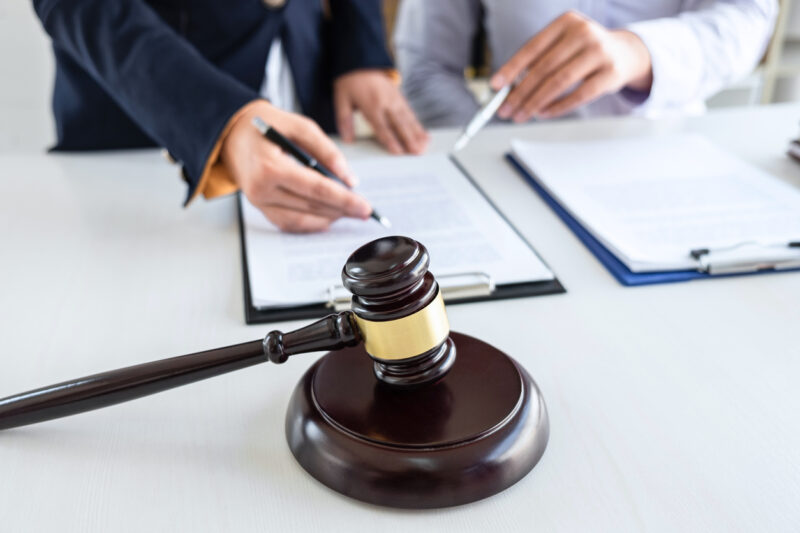March 21, 2025 | Personal Injury

The term “Esquire” holds a respected place in the legal profession, often appearing after an attorney’s name. Many people wonder about its meaning, origins, and proper use. Lawyers commonly use this title, but misconceptions still exist. A closer look at its history and relevance today clarifies its significance in personal injury claims.
Origins and Historical Use of Esquire
“Esquire” comes from medieval England, where it originally referred to young men training for knighthood. Over time, the term evolved to represent members of the gentry class. By the 14th century, it began appearing in legal contexts as a mark of distinction for those practicing law.
In early use, “Esquire” signified a person of elevated social standing, often associated with landowners. Over centuries, the title became a professional designation for attorneys, recognizing their education and status. Today, it reflects professionalism and respect within the legal community.
How Attorneys Use Esquire Today
Attorneys in the United States often use “Esquire” after their names to indicate their profession. This title distinguishes lawyers from non-lawyers and signals that they have passed the bar exam. You may see “John Doe, Esq.” on business cards, legal documents, or correspondence, emphasizing the individual’s professional standing.
Using “Esquire” reinforces credibility and authority in legal matters. It also sets attorneys apart from other legal professionals, such as paralegals and law clerks. Clients recognize this title as a mark of professionalism, helping establish trust in an attorney’s capabilities.
Differences Between Esquire and Other Legal Titles
“Esquire” differs from other legal titles such as “Attorney at Law” or “Counselor.” “Attorney at Law” explicitly states that a person holds a law license, while “Esquire” functions as a courtesy title. “Counselor” highlights the advisory aspect of legal practice, though attorneys frequently use it in court settings.
Unlike titles that indicate specialization, “Esquire” applies broadly to any licensed attorney. A “Patent Attorney,” for example, specializes in intellectual property law, whereas “Esquire” carries no such specification. Understanding these distinctions helps clients identify the qualifications and expertise of their legal representatives.
Who Can Use the Title Esquire?
Only licensed attorneys may use “Esquire” after their names. Graduating from law school alone does not qualify someone to use the title. An attorney must pass the bar exam and hold an active license in their jurisdiction.
Paralegals, law students, and legal consultants do not use this title. It serves as a way to distinguish fully licensed attorneys from other professionals in the legal field. Using “Esquire” correctly maintains the integrity of the legal profession and prevents confusion about an individual’s qualifications.
Misconceptions About the Esquire Title
Many people assume “Esquire” implies a lawyer’s specialty or seniority. In reality, the title does not indicate expertise in any particular area of law. A newly licensed attorney may use “Esquire” just as a seasoned lawyer does.
Another misconception suggests that “Esquire” carries a sense of superiority over other legal roles. While the title signifies professional status, it does not diminish the contributions of legal assistants, paralegals, or other team members. Each legal professional plays an important part in supporting clients and ensuring justice.
Esquire in the Context of Personal Injury Law
Personal injury attorneys often use “Esquire” to emphasize their legal qualifications. Lawyers in this field handle cases involving accident claims, medical malpractice, and workplace injuries. Their expertise allows them to represent clients seeking compensation for damages.
Using “Esquire” signals to potential clients that the attorney has met all licensing requirements. It assures accident victims that they are dealing with a professional who understands personal injury laws and legal procedures. Choosing an attorney with this designation helps clients confirm they are working with a qualified legal professional.
A Personal Injury Attorney Can Help With Your Case
Meeting with an attorney provides an opportunity to discuss your case and explore legal options. A licensed attorney can assess the details of your situation and recommend the best course of action.
Many personal injury attorneys offer free consultations, allowing you to evaluate their expertise without obligation. Speaking with an attorney helps clarify your legal rights and the steps needed to pursue compensation. Scheduling a consultation ensures that you receive professional legal guidance from an experienced attorney ready to advocate for your interests.
Contact our Personal Injury Lawyers at Goldstein Hayes & Lina, LLC for Legal Help With Your Case
If you suffered serious injuries after an accident in Atlanta, Georgia we are here for you. If you’d like to schedule a free case consultation with an experienced Atlanta personal injury attorney from Goldstein Hayes & Lina, LLC, please don’t hesitate to call (404) 869-8600, or you can visit our office:
Goldstein Hayes & Lina Accident Lawyers
3060 Peachtree Rd NW UNIT 1000,
Atlanta, GA 30305
(404) 869-8600
